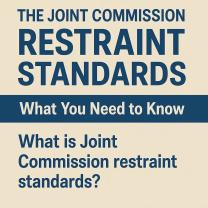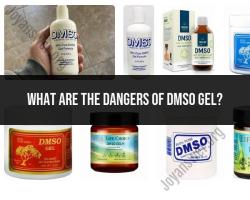Are garlic pills bad for acid reflux?
Garlic is known to be a potential trigger for acid reflux or heartburn in some individuals. While garlic itself is not necessarily "bad" for acid reflux, it contains certain compounds that can relax the lower esophageal sphincter (LES), a ring of muscle that separates the stomach from the esophagus. When the LES relaxes, it can allow stomach acid to flow back into the esophagus, leading to symptoms of acid reflux, such as heartburn, regurgitation, and discomfort.
If you are prone to acid reflux and are considering garlic pills or garlic supplements, here are some potential considerations:
Individual Sensitivity: Acid reflux triggers can vary from person to person. Some individuals may be more sensitive to garlic than others. If you've noticed that garlic tends to trigger your acid reflux symptoms when consumed in food, it's possible that garlic pills or supplements could have a similar effect.
Timing and Dosage: The timing of when you take garlic pills may also play a role. Some people may find that taking garlic supplements on an empty stomach or right before lying down increases the likelihood of acid reflux symptoms. Adjusting the timing of your supplements, such as taking them with meals, may help reduce the risk.
Formulation: Garlic supplements come in various formulations, including aged garlic extract and garlic oil capsules. Aged garlic extract is often considered gentler on the stomach and may be a better choice for individuals with acid reflux concerns.
Consultation with a Healthcare Provider: If you have frequent or severe acid reflux, it's advisable to consult with a healthcare provider, such as a gastroenterologist or primary care physician. They can provide personalized guidance on managing your acid reflux symptoms and may recommend dietary modifications, lifestyle changes, or medications to help control the condition.
Monitoring Symptoms: If you decide to try garlic supplements, pay close attention to how your body responds. If you notice an increase in acid reflux symptoms, discontinue the supplements and discuss your experience with a healthcare professional.
It's important to remember that while some individuals may experience acid reflux symptoms triggered by garlic, others may not be affected. Dietary triggers for acid reflux can vary widely among individuals, so it's essential to listen to your body and make choices that align with your specific needs and tolerances. If you have concerns about how garlic or any other dietary component may affect your acid reflux, seek guidance from a healthcare provider who can provide tailored advice.
Garlic Pills and Acid Reflux: Exploring the Connection
Garlic is a popular herb that has been used for centuries for its medicinal properties. However, there is some evidence to suggest that garlic pills may trigger acid reflux symptoms in some people.
Acid reflux is a condition in which stomach acid flows back up into the esophagus. This can cause a burning sensation in the chest, known as heartburn, as well as other symptoms such as a sour taste in the mouth, regurgitation, and coughing.
The exact mechanism by which garlic pills may trigger acid reflux is not fully understood. However, some possible explanations include:
- Garlic contains a compound called allicin, which is thought to increase stomach acid production.
- Garlic pills can irritate the lining of the esophagus, making it more susceptible to acid reflux.
- Garlic pills may delay gastric emptying, which can keep stomach acid in the stomach for longer and increase the risk of acid reflux.
Managing Acid Reflux with Garlic Supplements: Risks and Benefits
If you have acid reflux, it is important to talk to your doctor before taking garlic supplements. They can help you to weigh the risks and benefits and determine if garlic supplements are right for you.
Risks:
- Garlic pills may trigger acid reflux symptoms in some people.
- Garlic pills may thin the blood, which could increase the risk of bleeding.
- Garlic pills may interact with certain medications, such as blood thinners and aspirin.
Benefits:
- Garlic has anti-inflammatory and antioxidant properties.
- Garlic may help to improve cholesterol levels and reduce the risk of heart disease.
- Garlic may help to boost the immune system.
Dietary Choices for Acid Reflux Relief: Garlic Pills and Alternatives
If you have acid reflux, there are a number of dietary choices that you can make to help relieve your symptoms. These include:
- Avoiding foods that trigger your acid reflux symptoms. Common triggers include fatty and spicy foods, caffeine, and alcohol.
- Eating small, frequent meals throughout the day.
- Avoiding eating before bed.
- Elevating your head and upper body when you sleep.
If you are taking garlic pills and you experience acid reflux symptoms, it is important to stop taking the pills and talk to your doctor. There are a number of alternative supplements and medications that can help to manage acid reflux.
Here are some alternative supplements that may help to relieve acid reflux symptoms:
- Ginger
- Licorice root
- DGL (deglycyrrhizinated licorice root)
- Betaine HCI
- Pepsin
It is important to note that these supplements may interact with certain medications, so it is important to talk to your doctor before taking them.
If you are looking for non-dietary ways to manage acid reflux, there are a number of lifestyle changes that you can make, such as:
- Losing weight if you are overweight or obese.
- Quitting smoking.
- Managing stress.
If you have tried all of these things and your acid reflux is not improving, you may need to talk to your doctor about prescription medications.












